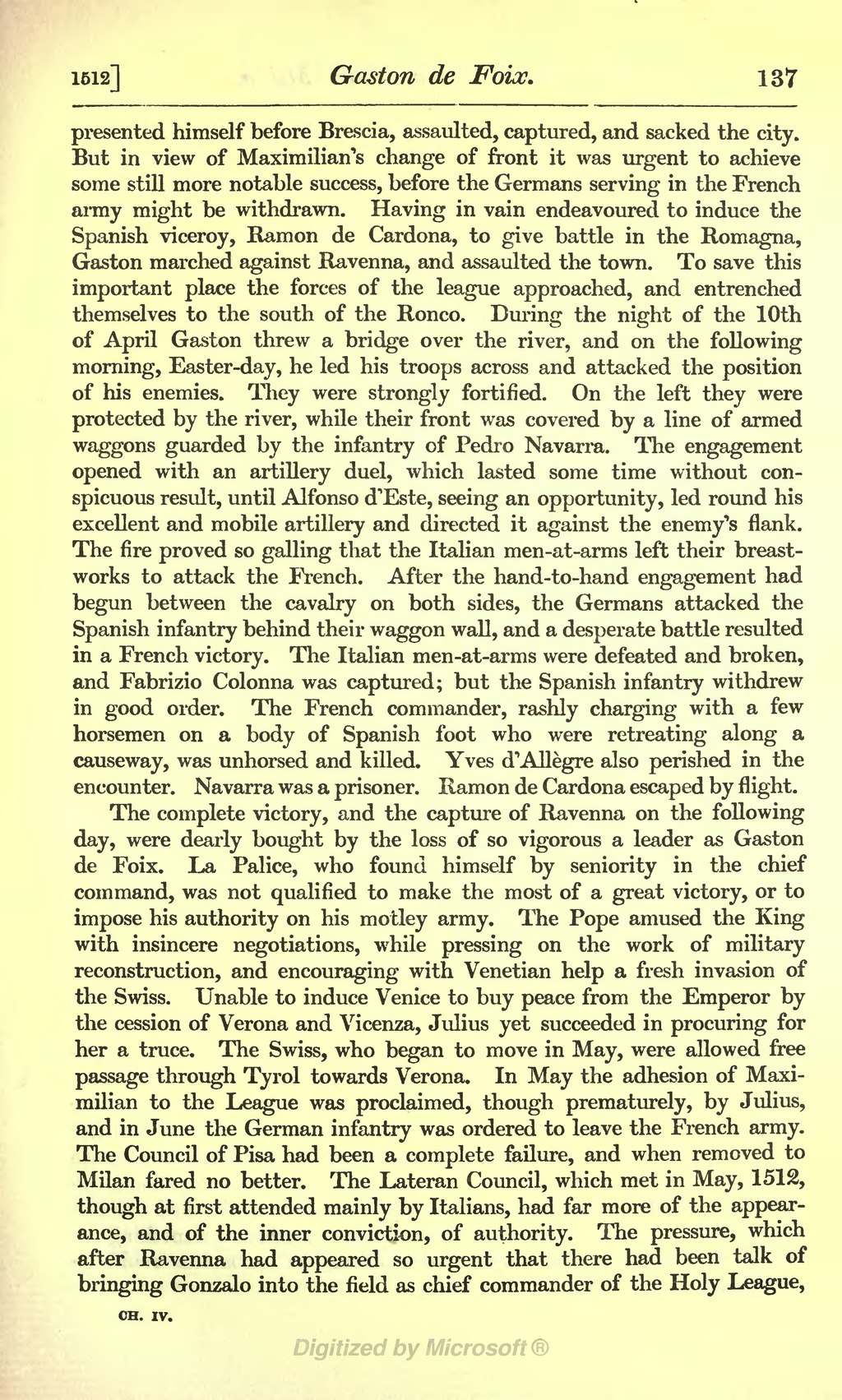presented himself before Brescia, assaulted, captured, and sacked the city. But in view of Maximilian's change of front it was urgent to achieve some still more notable success, before the Germans serving in the French army might be withdrawn. Having in vain endeavoured to induce the Spanish viceroy, Ramon de Cardona, to give battle in the Romagna, Gaston marched against Ravenna, and assaulted the town. To save this important place the forces of the league approached, and entrenched themselves to the south of the Ronco. During the night of the 10th of April Gaston threw a bridge over the river, and on the following morning, Easter-day, he led his troops across and attacked the position of his enemies. They were strongly fortified. On the left they were protected by the river, while their front was covered by a line of armed waggons guarded by the infantry of Pedro Navarra. The engagement opened with an artillery duel, which lasted some time without conspicuous result, until Alfonso d'Este, seeing an opportunity, led round his excellent and mobile artillery and directed it against the enemy's flank. The fire proved so galling that the Italian men-at-arms left their breastworks to attack the French. After the hand-to-hand engagement had begun between the cavalry on both sides, the Germans attacked the Spanish infantry behind their waggon wall, and a desperate battle resulted in a French victory. The Italian men-at-arms were defeated and broken, and Fabrizio Colonna was captured; but the Spanish infantry withdrew in good order. The French commander, rashly charging with a few horsemen on a body of Spanish foot who were retreating along a causeway, was unhorsed and killed. Yves d'Allegre also perished in the encounter. Navarra was a prisoner. Ramon de Cardona escaped by flight. The complete victory, and the capture of Ravenna on the following day, were dearly bought by the loss of so vigorous a leader as Gaston de Foix. La Palice, who found himself by seniority in the chief command, was not qualified to make the most of a great victory, or to impose his authority on his motley army. The Pope amused the King with insincere negotiations, while pressing on the work of military reconstruction, and encouraging with Venetian help a fresh invasion of the Swiss. Unable to induce Venice to buy peace from the Emperor by the cession of Verona and Vicenza, Julius yet succeeded in procuring for her a truce. The Swiss, who began to move in May, were allowed free passage through Tyrol towards Verona. In May the adhesion of Maximilian to the League was proclaimed, though prematurely, by Julius, and in June the German infantry was ordered to leave the French army. The Council of Pisa had been a complete failure, and when removed to Milan fared no better. The Lateran Council, which met in May, 1512, though at first attended mainly by Italians, had far more of the appearance, and of the inner conviction, of authority. The pressure, which after Ravenna had appeared so urgent that there had been talk of bringing Gonzalo into the field as chief commander of the Holy League,
Page:Cambridge Modern History Volume 1.djvu/173
This page needs to be proofread.
